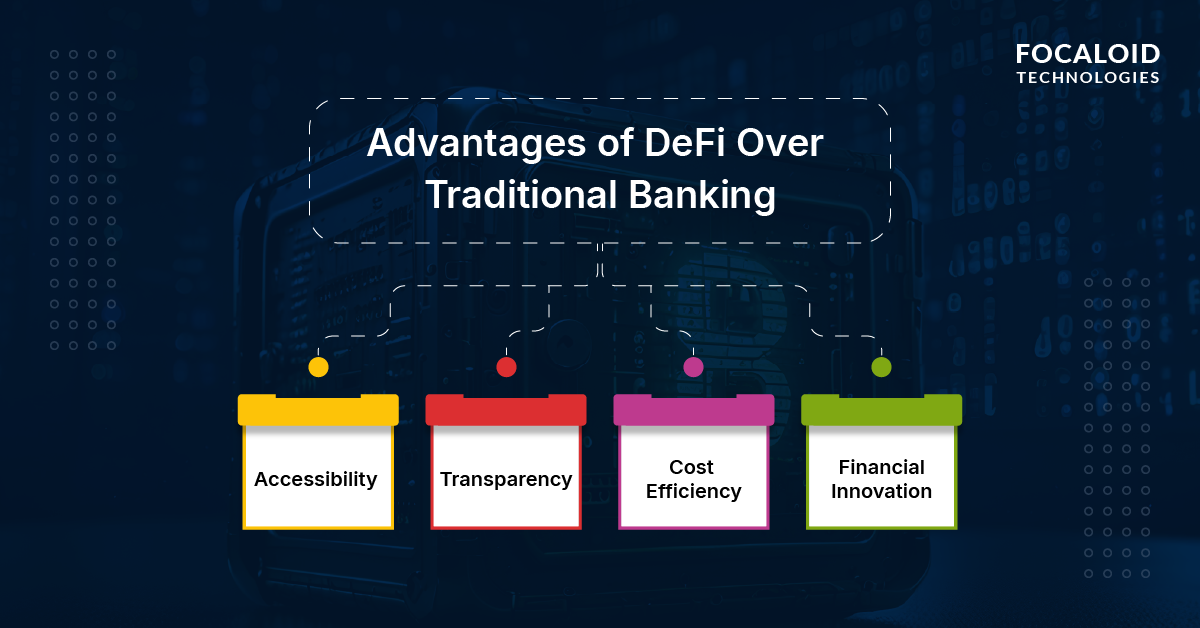Decentralized Finance (DeFi) is rapidly transforming the financial landscape, challenging the traditional banking system’s long-standing dominance. DeFi provides transparent decentralized digital money which operates without any centralized authority and is based on blockchain technology. The DeFi ecosystem had recently gained global millions of users with an estimated 7.5 million unique users worldwide as of January 2025.
What is Decentralized Finance (DeFi)?
Decentralized Finance (DeFi) refers to a financial system built on blockchain technology that eliminates intermediaries like banks and financial institutions. It provides users the ability to engage with financial services like lending, borrowing, trading, and investing directly on decentralized platforms through smart contracts. DeFi, meaning decentralized in finance, is entirely different from traditional finance, where the central authorities regulate it, as it works on peer-to-peer networks and provides more transparency, access, and safety.
Key components of DeFi include:
- Blockchain Technology : A decentralized ledger that records all transactions securely and transparently.
- Smart Contracts : Self-executing contracts that automate financial agreements without the need for intermediaries.
- Decentralized Applications (DApps): Platforms built on blockchain that offer financial services without a central governing body.
- Decentralized Exchanges (DEXs) : Platforms that enable users to trade assets directly without relying on traditional banks.
Understanding DeFi and Traditional Banking
This traditional banking functions through centralized institutions that handle deposits, loans, and other financial services. These banks serve as intermediaries, controlling access to money and often levying fees and regulations that can restrict access.
On the other hand, DeFi makes use of smart contracts on blockchain networks to remove intermediaries. This decentralized approach allows for peer-to-peer transactions, providing services such as lending, borrowing, and trading without a central authority. The upshot is a more inclusive financial system that functions around the clock, giving users greater control over their assets.
How Does Decentralized Finance Work?
DeFi operates on blockchain networks, primarily Ethereum, using smart contracts to facilitate financial transactions without intermediaries. Here’s how it works:
- Smart Contracts: These self-executing contracts automatically enforce agreements between parties, ensuring transparent transactions.
- Decentralized Exchanges (DEXs): Users can trade cryptocurrencies directly without relying on a central authority.
- Liquidity Pools: Investors provide liquidity to DeFi platforms and earn rewards in return.
- Lending and Borrowing: Platforms like Aave and Compound allow users to lend assets and earn interest or borrow funds by collateralizing assets.
- Yield Farming & Staking: Users earn additional rewards by providing liquidity or locking up assets in DeFi protocols.
Advantages of DeFi Over Traditional Banking
- Accessibility
With all that said, DeFi platforms are accessible to anyone with an internet connection and allow access to financial services for unbanked and underbanked populations. A 2024 report by the U.S. Federal Deposit Insurance Corporation (FDIC) revealed that underbanked households are more likely to own cryptocurrencies, indicating DeFi’s potential to bridge financial inclusion gaps.
- Transparency
Blockchain’s public ledger ensures all transactions are transparent and immutable, reducing the risk of fraud and corruption.
- Cost Efficiency
By removing intermediaries, DeFi reduces transaction costs, offering more competitive rates for services like loans and savings.
- Financial Innovation
DeFi is at the forefront of financial innovation, introducing concepts like yield farming, liquidity mining, and decentralized exchanges, which provide users with new opportunities to grow their assets.
Challenges Facing DeFi
Despite its advantages, DeFi faces several challenges:
Security Risks: Smart contract vulnerabilities can be exploited by hackers, leading to significant financial losses.
Regulatory Uncertainty: The lack of clear regulatory frameworks for DeFi poses risks for users and developers, potentially hindering mainstream adoption.
Scalability Issues: As DeFi platforms grow, ensuring they can handle increased transaction volumes without compromising speed or cost is crucial.
The Future of DeFi and Traditional Banking
By 2025, industry insiders foresee a significant increase in the adoption of DeFi due to developments in Bitcoin staking, tokenization of real-world assets, and integration of AI. With the maturation of DeFi, traditional banks are looking at ways to plug in decentralized technologies into their offerings. As they leverage DeFi products like lending platforms to optimize and reach a tech-savvy demographic.
DeFi’s Impact on the Healthcare Industry
DeFi is set to transform industries such as health, beyond finance. DeFi can help enable financial inclusion — giving healthcare providers, particularly small ones, access to raise financing for expensive equipment. The addition of transparency and security in the blockchain can also aid manage data better and keep the processes of the healthcare system more streamlined.
How Focaloid Technologies Can Help in Creating DeFi Applications
As an IT services company, Focaloid Technologies specializes in custom blockchain solutions, enabling businesses to harness the power of DeFi. Here’s how Focaloid can help in creating secure, scalable, and innovative DeFi applications :
- Custom DeFi Platform Development
Focaloid builds decentralized lending, borrowing, and trading platforms, integrating smart contracts that ensure secure and transparent transactions.
- Smart Contract Development & Auditing
Focaloid’s blockchain experts design and audit smart contracts, reducing vulnerabilities and ensuring compliance with industry standards.
- Tokenization & Digital Asset Management
From real-world asset tokenization to liquidity management, Focaloid helps businesses enter the DeFi ecosystem seamlessly.
- Integration with Healthcare & Banking Systems
With expertise in healthcare IT and fintech, Focaloid develops DeFi solutions tailored to industries that require secure, regulatory-compliant digital finance applications.
- Security & Compliance Solutions
Focaloid ensures rigorous security testing and compliance with global regulations, making DeFi applications more trustworthy for both businesses and end-users.
Conclusion
While DeFi presents a compelling alternative to traditional banking, it is unlikely to completely replace it soon. Instead, a hybrid model could arise, with traditional financial institutions incorporating DeFi technologies into their operations to improve services. The evolution of the financial landscape through collaboration for DeFi platforms connecting through IT service providers like Focaloid Technologies into a more inclusive, efficient and innovative financial system is sure soon.
Take the Next Step with Focaloid Technologies
The future of finance is evolving, and businesses that embrace DeFi will gain a competitive edge. Whether you’re looking to develop a secure DeFi platform, integrate blockchain technology into your services, or explore new opportunities in decentralized finance, Focaloid Technologies is here to help.
Contact us today to learn how our expertise in blockchain development can drive your success in the DeFi space!


